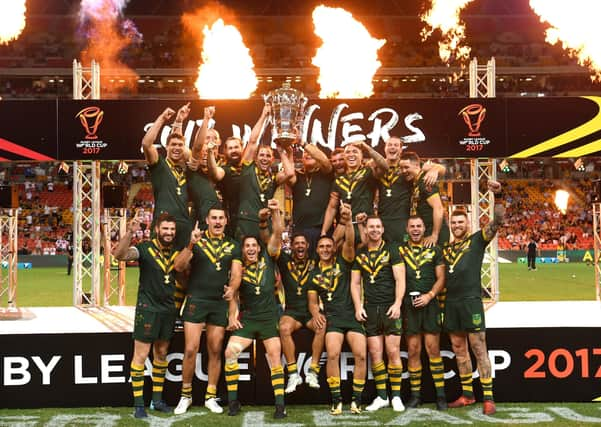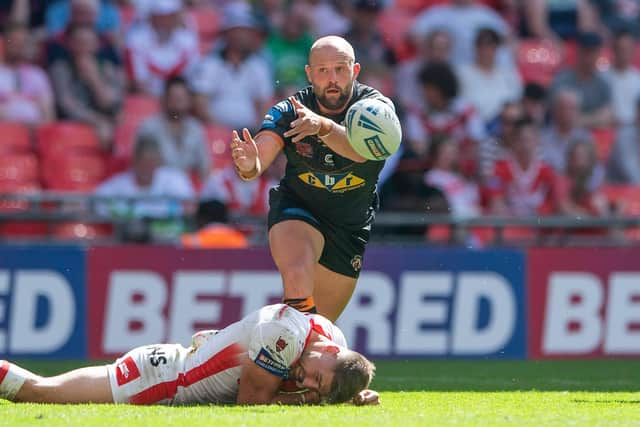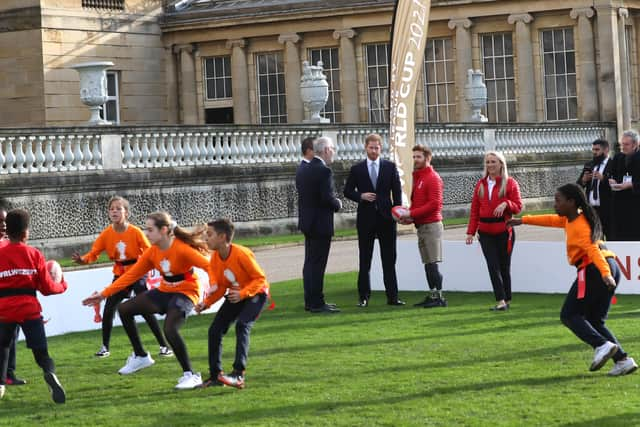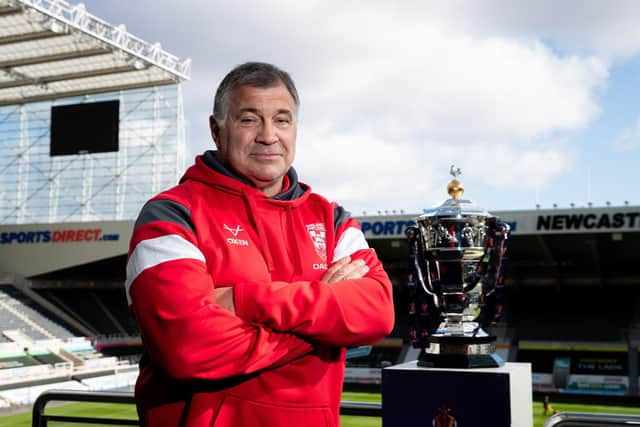Why staging Rugby League World Cup this year is the right call – Dave Craven


It is rugby league’s day in the spotlight. It deserves such wonderful exposure.
More often than not, the sport delivers. That was true once more on Saturday when St Helens and Castleford Tigers produced a brilliant final, Featherstone Rovers and York City Knights having done likewise in the curtain-raiser 1895 Cup final.
Advertisement
Hide AdAdvertisement
Hide AdNine months on from a behind-closed-doors affair, Wembley was alive again with the colour, chatter and conviviality of thousands of fans from myriad clubs.
There was none of the ugliness and unsavoury sights that had besmirched the Euros football final just six days previously; it felt like a world away.
The BBC beamed the occasion out live to the masses with a peak audience of 1.1m. A great success.
However, if rugby league is to survive, let alone thrive, it needs more than one day in the spotlight. It needs its day in the sun consistently. It needs a heatwave.
Advertisement
Hide AdAdvertisement
Hide AdThe Rugby League World Cup 2021 can provide that; all 61 matches across the competition – men’s, women’s and wheelchair – will be televised live on the BBC.


Just consider that for a moment. Consider all the potential eyes on the sport for the duration of the tournament from October 23 to November 27
It has been dubbed the “most visible rugby league event in history”. That is why it is so important organisers made the decision to push on with the event this year rather than postpone until 2022 because of the ongoing concerns over the pandemic.
Granted, they have done so without getting confirmation yet that Australia – reigning champions in the men’s and women’s tournament – will take part.
Advertisement
Hide AdAdvertisement
Hide AdThere are obviously issues regarding Covid regulations and quarantine rules for players and staff travelling back to Australia and New Zealand.


Given Australia’s borders are currently closed, anyone returning has to spend 14 days in government-managed quarantine.
With that in mind, and their own holiday entitlement, NRL players would only arrive back at their club two weeks before trial games for the 2022 season begins.
That has clearly caused issues for NRL clubs, a dozen of which have had to be relocated to Queensland for at least a month due to concerns over rising infection rates in New South Wales.
Advertisement
Hide AdAdvertisement
Hide AdAustralia has done wonderfully well in restricting the spread of the virus – less than 1,000 people have died from Covid throughout the pandemic – but only around 11 per cent of their population has been fully vaccinated.


It is understandable why NRL clubs would want to see the World Cup postponed until 2022 but, if tournament organisers had bowed to them now, it may well have sounded the death knell for international rugby league.
Delaying by 12 months would have seen the RLWC overlap with the football World Cup in Qatar; you could wave goodbye to the majority of that exposure on the BBC. Spotlight? Rugby league would instead look like a tiny spot somewhere on the horizon.
The NRL already rules in Australia where the club game and State of Origin are king and the international game can often be seen as an after-thought.
Advertisement
Hide AdAdvertisement
Hide AdRLWC2021 organisers have rightly pointed out that the Wallabies and the All Blacks – Australia and New Zealand’s rugby union sides – are in the UK playing in November so they hope a solution can be found for their league counterpart’s issues.
Whatever the outcome, the RLWC was right to put their foot down in this instance; if they had ceded to the NRL now and delayed, who is to say something else will not become an issue in 2022? Obviously, no one would begrudge any player’s decision not to travel to the World Cup this year. That is fully understandable. And some nations may need to field weakened teams but it is imperative the tournament goes ahead as planned.
Newcomers to the sport – the people the sport urgently needs to attract – will not necessarily know if stars are missing.
Those that do will probably simply be happy there is a chance to savour a World Cup having seen so much action over the last 16 months obliterated by the pandemic. And the sport needs to make hay – while this sun shines.